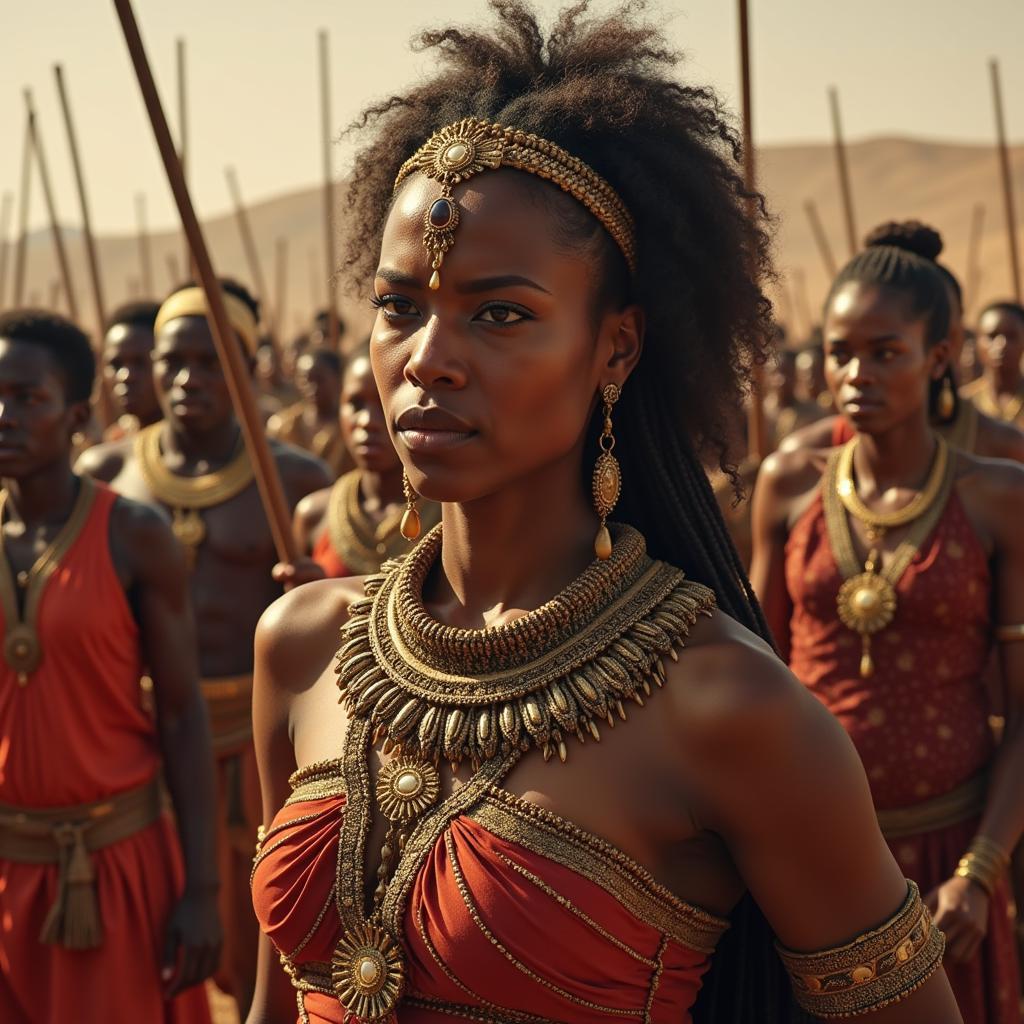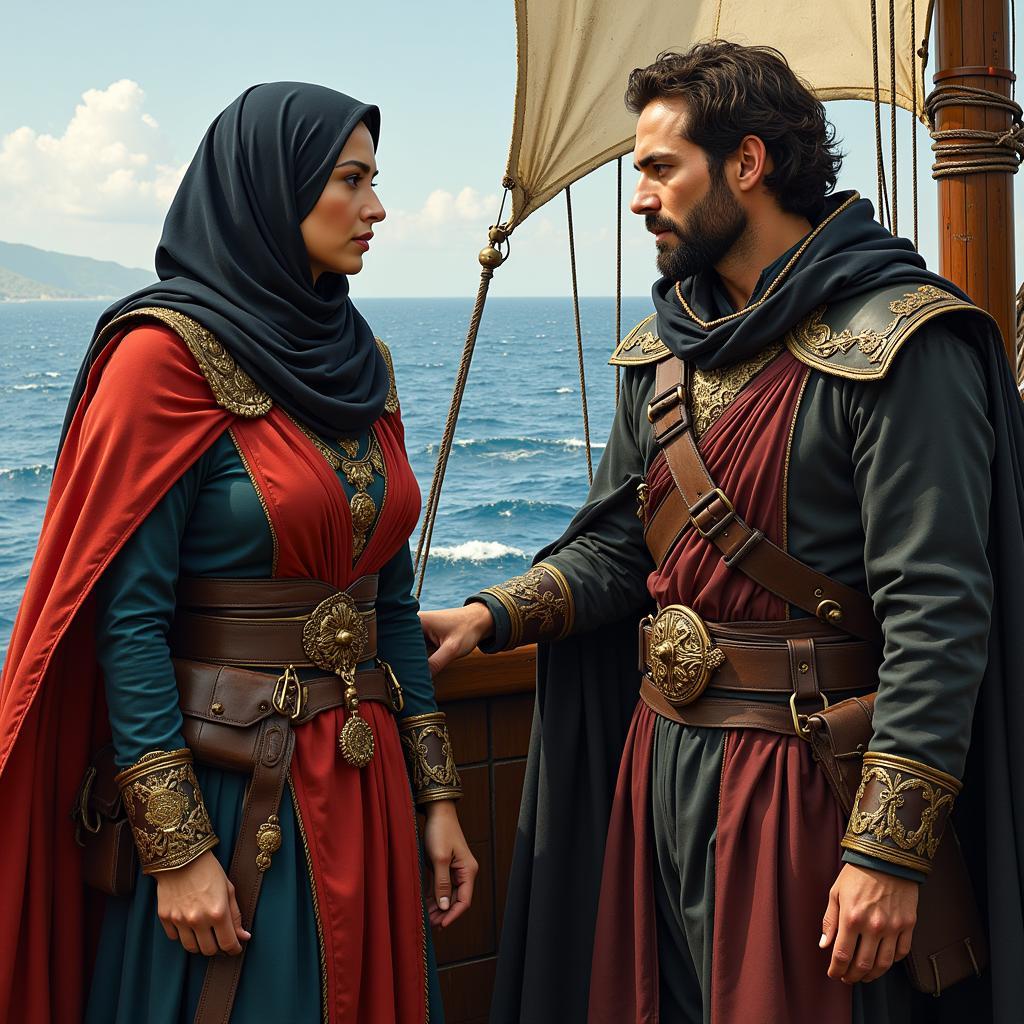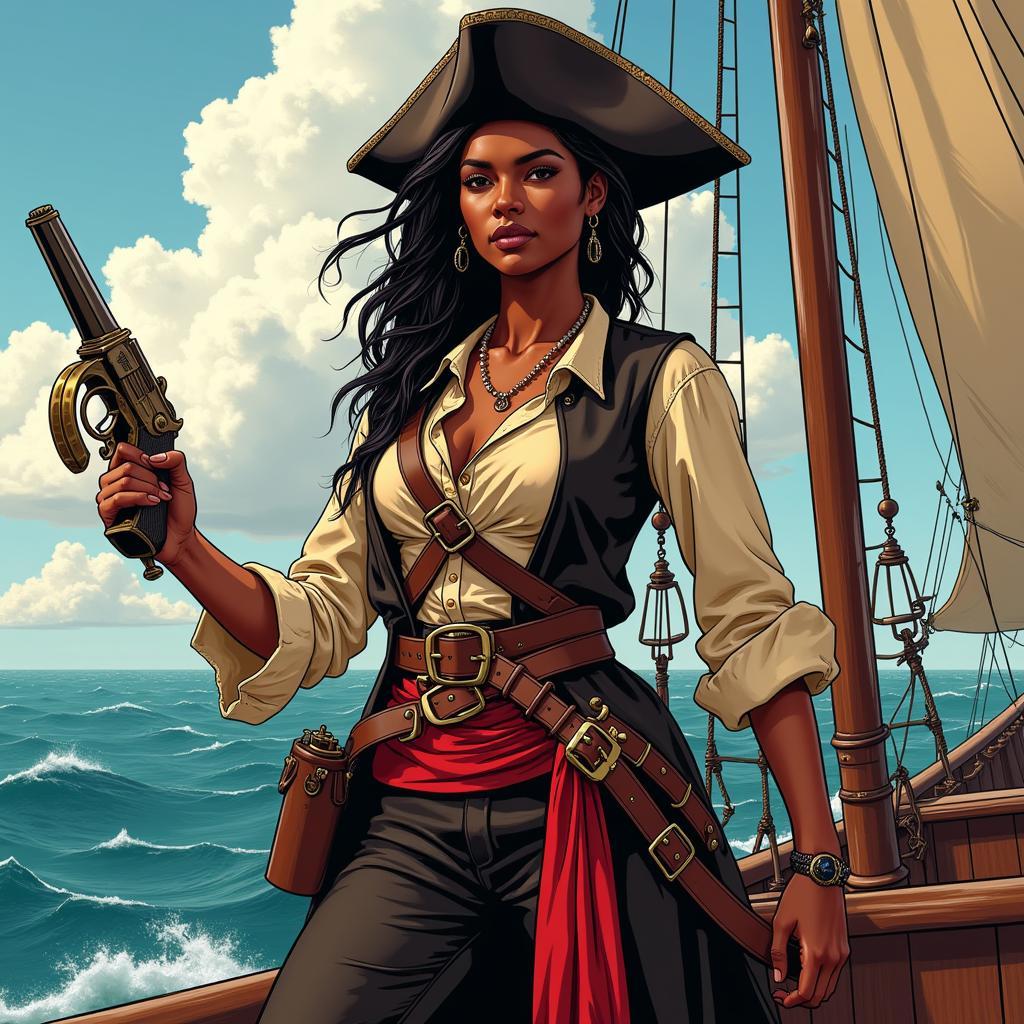African Female Pirates: Unveiling the Legends of the Seas
African Female Pirates carved their names in history, defying societal norms and becoming powerful figures in a world dominated by men. While often shrouded in mystery, their stories challenge our perceptions of gender roles and offer a glimpse into a different side of maritime history. These women weren’t just wives or captives forced into piracy – they were strategists, warriors, and leaders who commanded respect and instilled fear in equal measure.
Who Were the Most Famous African Female Pirates?
While the annals of history often overlook the contributions of women, a few names resonate when discussing African female pirates. One such legend is Queen Nzinga Mbande of Ndongo and Matamba (modern-day Angola). Though not strictly a pirate in the traditional sense, she used her naval prowess to control trade routes along the African coast in the 17th century. Nzinga fiercely resisted Portuguese colonial advances, forging alliances with other African states and even Dutch forces to maintain her kingdom’s independence.
 Queen Nzinga Leading Her Army
Queen Nzinga Leading Her Army
Another remarkable figure is Sayyida al-Hurra, who ruled the Moroccan city of Tétouan in the early 16th century and controlled the western Mediterranean Sea. Known for her intelligence and strategic brilliance, she partnered with the infamous Turkish privateer Barbarossa to raid Spanish ships and coastal settlements. Sayyida al-Hurra’s reign marked a time of significant maritime power for Morocco, solidifying her legacy as a formidable female pirate queen.
 Sayyida al-Hurra Negotiating with Barbarossa
Sayyida al-Hurra Negotiating with Barbarossa
Why Did Women Turn to Piracy?
The reasons women turned to piracy were complex and varied. For some, like Sayyida al-Hurra, it was a means to secure power and protect their interests. In a time of colonial expansion and intense competition for resources, piracy offered a way to challenge European dominance and assert their autonomy.
For others, piracy provided an escape from societal constraints. Traditional gender roles often limited women’s opportunities, but on pirate ships, skills and ruthlessness mattered more than gender. Piracy offered a chance to break free from societal expectations, find adventure, and gain wealth and influence on their terms.
The Challenges Faced by African Female Pirates
Despite their accomplishments, African female pirates faced significant challenges. They operated in a male-dominated world where they constantly had to prove themselves. Prejudice and discrimination were rampant, and they had to overcome deep-seated societal biases to gain acceptance and respect.
 An African Female Pirate aboard a Ship
An African Female Pirate aboard a Ship
Furthermore, the life of a pirate was inherently dangerous. They faced constant threats from the elements, rival pirates, and the navies of various nations seeking to stamp out piracy. Yet, despite these dangers and challenges, African female pirates persevered, etching their names in the annals of maritime history through their courage, resilience, and unwavering pursuit of freedom.
Conclusion
The stories of African female pirates, though often fragmented and incomplete, offer a captivating window into a bygone era. They challenge conventional narratives, highlighting the often-overlooked role of women in shaping history. These women were pioneers who defied societal norms and carved their own destinies amidst the tumultuous waves of piracy. As we delve deeper into their stories, we uncover a legacy of strength, resilience, and an indomitable spirit that continues to inspire today.

